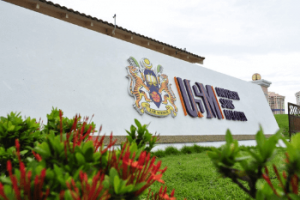Home » Applied Sciences
Study Applied Sciences Abroad!
- Duration: 3 - 5 Years
- Average fees: RM 50,000 to 70,000
- Average Salary: RM 3,000 to 4,000
- Job Demand: Mid - High
Introduction to Applied Sciences
Pure science, also known as basic science, focuses on developing and testing theories about the world we live in. It seeks to expand knowledge and is driven by curiosity to discover more about the natural world. Research is conducted in the laboratory and does not require practical application.
In contrast, applied science uses the scientific knowledge gained to solve problems such as curing diseases and developing sustainable energy sources. These applications are conducted outside the laboratory and usually relate to engineering and technology.
While the two sciences differ, they are actually immensely valuable to each other. Inventions from applied science often rely on knowledge gained from pure science research to solve concrete problems.
Why are Scientists important?
With new technology and inventions on the rise, the world needs scientists now more than ever to provide information that could help improve inventions, cure diseases, and develop solutions to environmental pollution.
This skillset of a scientist applies to every field. From technology to environmental sustainability, medicine, film, and education, scientists have a wide list of fields to work in. In addition to possessing skills that can develop new theories and create a new generation of technological inventions, scientists also make contributions to improve the economy and save lives.
In fact, we’ve had numerous contributions over the years from great scientists such as Albert Einstein, Issac Newton, Charles Darwin, and Marie Curie.
Would you like to be known as one of humanity’s biggest contributions to science, just like these scientists?
Fields of Applied Science
There are several specializations in the field of science:
- Computer science
- Medical science
- General engineering
- Architectural science
- Applied Physics
- Applied Mathematics
- Chemistry
- Biology
- Physics
What will you study in this course?
Common courses of pure and applied sciences are:
Botany
At undergraduate level, this course introduces students to plant structure as well as basic plant anatomy, physiology and biology. Students will also learn about the life cycles of various plants and gain a general understanding of the different species in the plant kingdom.
Ecology
At undergraduate level, students will learn about the relation of organisms to one another and their physical environment. Concepts of reproduction and taxonomy will be introduced as well as laboratory work on how to conduct ecological research, analyze, and interpret the resulting data.
Environmental Science
Students will gain a basic understanding of environmental science at undergraduate level. Upon graduate level, the course will introduce advanced concepts of thermodynamics, biogeochemistry, climatology and mathematical models for environmental analysis.
Genetics
At undergraduate level, students will learn about topics of genetics that include mitosis, genetic crosses, gene mapping, and transduction. This also covers laboratory work, where students will engage in solving genetic problems through the fundamental principles of genetics and their applications on plants, humans, and animals.
Biotechnology
Introductory biotechnology covers fundamental biochemistry, cell biology, and molecular biology at undergraduate level. Later on, students will be exposed to recombinant DNA techniques, cloning, and stem cell research.
Why should you study Applied Science?
- Practical experience
Studying pure or applied sciences will require you to perform a lot of practical experiments. This trains you to apply existing scientific knowledge to situations when needed, a valuable skill that potential employers will expect from you. By the time you complete your studies, you’ll have the knowledge and skills needed to land a job easily.
- To change the world
You can leave your legacy behind by making a scientific contribution that will help improve the world. Inventions of the past such as airplanes, automobiles, and electricity-powered batteries was a breakthrough for humanity and were all made by people with scientific backgrounds.
- Wide career opportunities
People with qualifications in pure and applied sciences hardly lack employment. This is because there is a wide list of opportunities in engineering, medicine, astronomy, biology, and technology that students can pursue after graduation. The knowledge you gain from studying a science degree is useful in many fields and will always be in demand.
What are the job opportunities?
With a degree in science, you get a lot of career diversity. These are:
Astronomer: Scientists who focus their studies on the space outside Earth. They study and provide explanations about the universe using high-tech instruments and methods.
Dentist: Dentists treat problems related to the mouth, teeth, and gums. They also perform teeth whitening, teeth restoration, and give advice on how to maintain dental health.
Chemist: Chemists perform experiments in a laboratory such as testing different formulas, substances, and chemicals. They are also responsible for analyzing and reporting scientific results, validating research methods, and analyzing different samples.
Mathematician: Mathematicians analyze and develop new models and data to improve theories. There are two types of mathematicians; theoretical and applied mathematicians. Theoretical mathematicians identify unexplained issues through research and applied mathematicians utilize these theories to solve problems.
Geologist: Geologists study the surface of the earth and all its elements; rocks, mountains, waterfalls and soil. They also study about the origin of the planet and research on the historical theories of the earth to predict and avoid natural disasters.
Physician: Physicians diagnose and treat injuries or diseases. They monitor patients’ conditions, prescribe treatments, and counsel patients on a recommended diet and healthcare plan.
Are you interested to study this subject in Malaysia?
Please fill up the form and our conselors will get back to you shortly.
Universities to attend:
Courses to take:
What's new

5 Easy and Affordable Recipes for Students Away from Home! – Eduloco Recipes
Looking for some easy and wallet-friendly recipes? You’re in the right place! At Eduloco, we understand the student life hustle, and that’s why we’ve curated







